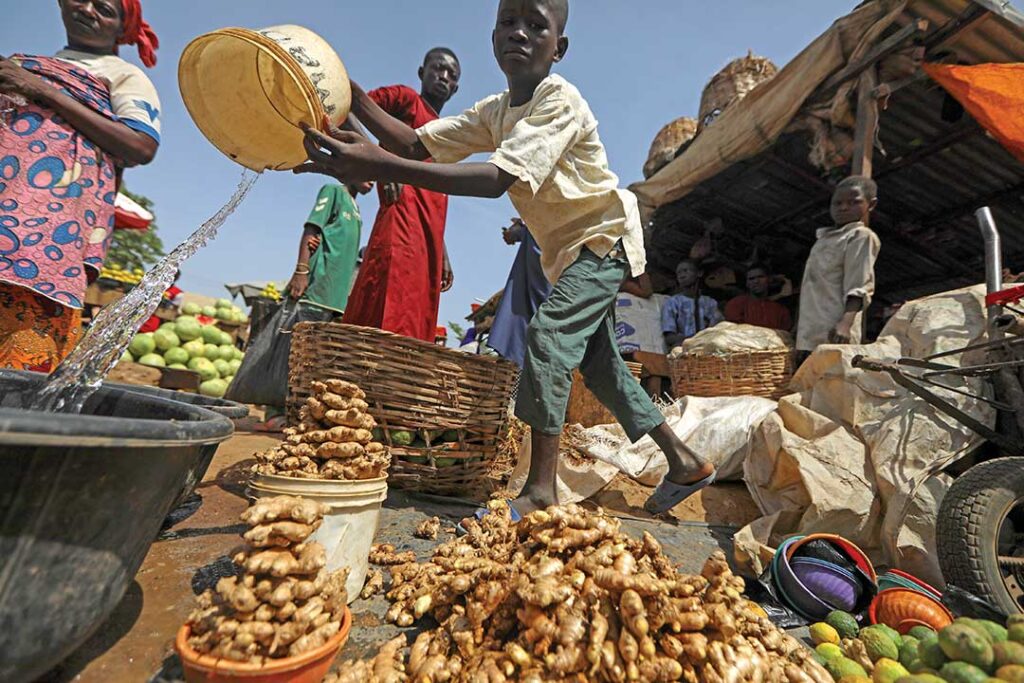REUTERS
In a flowing hijab, Karima M. Imam walks through her fields in northern Nigeria’s scrubland as workers harvest ginger, a gnarled brown root that has turned gold since COVID-19 struck.
“If I had the capital, I’d plant more. People are looking for ginger now, and there is not enough,” she said at her 5-hectare farm on the outskirts of Kaduna.
As the pandemic rages, people around the world have sought to guard against illness by turning to so-called healthy halo foods. Although scientists have dismissed many claims on social media about how superfoods can fend off the virus, their positive role as part of a healthy diet is widely acknowledged.
As demand for halo foods surges, prices for ginger in Nigeria and acai berries in Brazil have leapt while exports of Indian turmeric and Chinese garlic have jumped in the past year.
In Nigeria, a 50-kilogram bag of ginger, which can help the body ward off germs and is used as a cold remedy, now sells for 15,000 naira ($39), up from 4,000 to 6,000 naira two years ago.
Thanks to the ginger rush, Imam has been able to start building a new house in nearby Millennium City, with a small warehouse attached so she can store and sell fresh ginger, which sells for more than the dried version.

